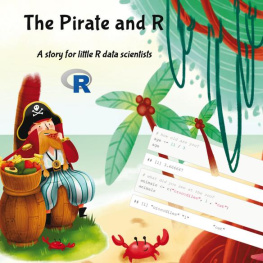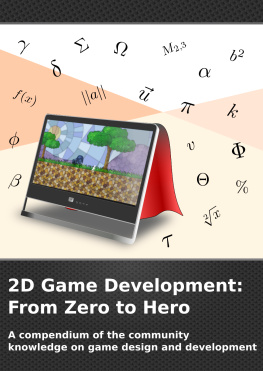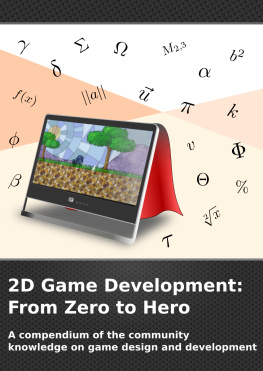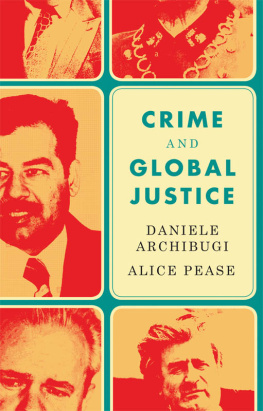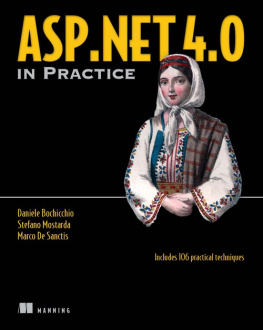First published 2001 by Ashgate Publishing
Reissued 2018 by Routledge
2 Park Square, Milton Park, Abingdon, Oxon OX14 4RN
711 Third Avenue, New York, NY 10017, USA
Routledge is an imprint of the Taylor & Francis Group, an informa business
Copyright Danile Joly 2001
All rights reserved. No part of this book may be reprinted or reproduced or utilised in any form or by any electronic, mechanical, or other means, now known or hereafter invented, including photocopying and recording, or in any information storage or retrieval system, without permission in writing from the publishers.
Notice:
Product or corporate names may be trademarks or registered trademarks, and are used only for identification and explanation without intent to infringe.
Publishers Note
The publisher has gone to great lengths to ensure the quality of this reprint but points out that some imperfections in the original copies may be apparent.
Disclaimer
The publisher has made every effort to trace copyright holders and welcomes correspondence from those they have been unable to contact.
A Library of Congress record exists under LC control number: 2001095452
ISBN 13: 978-1-138-70254-7 (hbk)
ISBN 13: 978-1-315-20971-5 (ebk)
All my thanks go first to Michel Wieviorka, Director of the Centre dAction et dIntervention Sociologique (Paris), who invited me to join his team for an innovative and stimulating research experience. He also made it possible for sociological intervention to be carried out in Britain for the first time. I would like to thank those who in Birmingham contributed to the sociological intervention sessions; my main team members Denise Amory and Eric Mace and also Olivier Cousin, Khursheed Wadia and Lynnette Kelly and above all, all the young people who took part in it. Many thanks also to our interlocutors.
We owe the funding for this piece of research to the RATP (Rseau Autonome des Transports Parisiens). As ever Rose Goodwin meticulously prepared the text for publication.
My warmest thanks finally go to my friend John who has been enormously supportive and caring. John Rex and his immense knowledge have inspired much of my thinking throughout my research work.
Michel Wieviorka
What is the utility of social sciences? For some researchers, social sciences constitute learning in their own right, a body of knowledge based on various requirements of stringency and reliability, which form the basis of the organisation of academic discussion and professional life in academic journals, in symposiums or, quite simply, within the university, which may well remain isolated from the general life of the city. For others, and sometimes also for the same, social sciences provide the tools, knowledge and know-how required by decision-makers, or those who challenge them: political actors, heads of firms, or trade-unions for example. They are a form of technical expertise and are the basis of advisory functions.
Other researchers, on the contrary, far from these orientations, consider that the task of the social sciences is primarily to provide a critical point of view. Here, the aim of the knowledge they produce is to provide material not for professional circles, but for public discussion, preferably in highly critical terms a process which does not necessarily involve any relationship, even a strained one, with any actor whatsoever. In this situation the researcher is politically involved, his or her profile is that of the intellectual, of which he or she is one example among many. From this point of view, he or she may be an organic intellectual, in the service of an actor who is dominated or challenged; or yet again, he or she may be very different, claiming to be totally uninvolved and purely critical in attitude.
It is obvious that the book which Danile Joly has just completed does not fit either of these descriptions. Or, rather, it borrows the best of both, leading to an approach of which the originality deserves to be stressed 1 will do so later. The contents, particularly the first four chapters of the book, are in the first instance a fundamental and well-argued contribution to what constitutes one of the major discussions of our era: the question of cultural difference, its nature, and the policies elaborated to deal with it in political terms. Thus, with the collaboration of Cathie Lloyd, Danile Joly has assessed the knowledge available on ethnic relations in Great Britain, the country in Europe which found the way to analyse and scientifically discuss this question long before the others Danile Joly then discusses the concept of ethnicity and other related themes, contextualising them in particular in relation to the concepts of hybridization and creolisation; she has reconstructed the political question of ethnic minorities and of immigration and given the researcher David Owen the possibility of presenting a sensitive and illuminating monograph on the specific case of the city of Birmingham. All this puts Danile Jolys work at the highest level in academic discussions on ethnicity, minorities, immigration, etc. At the same time, the social and political criticism reveals Danile Jolys central preoccupation: the desire to convey the experience of young people of Afro-Caribbean origin in Great Britain an experience which is a combination of contempt, racist rejection and social exclusion.
But Danile Joly goes much further and the above remarks are only preparing the way leading to the main point. Hers is an account of a social and cultural problem which reveals aspects our society too often refuses to consider, and therefore articulates a highly rigorous approach with a critical position. But it does not stop there. Danile Joly reveals the oppression, the prejudice, the particularly unfair treatment which the Black Caribbean origin youths meet; but she also lets them speak and enables them to produce their own analysis of their situation and to consider the conditions necessary for them to carry out actions likely to transform this situation.
Her sociology then becomes, for the first time in Great Britain, that of sociological intervention. Here the researchers go further than simply allowing those they study to speak though this is itself a step forward. They set up a means of co-producing knowledge, and invite the actors to join them in thinking about their action. The method of the sociological intervention is based on the establishment of an intense and demanding relationship between the researchers, who elaborate hypotheses and submit them to the actors and the latter, who discuss these hypotheses, appropriate them if they seem to fit or elaborate new ones with the researchers if they do not.
In other approaches, research findings are based on documents or on the analysis of taped interviews which Danile Joly knows how to do very well without the people concerned having their say; at the most, the researchers occasionally present the results of their analysis to the actors for their information a restitution as a mark of their appreciation. But in the sociological intervention methodology, the findings are primarily the outcome of the relationship between the actors and the researchers one might almost say the test or the demonstration of this inter-relationship. For once, the actors participate in the production of the knowledge concerning them, they are the





